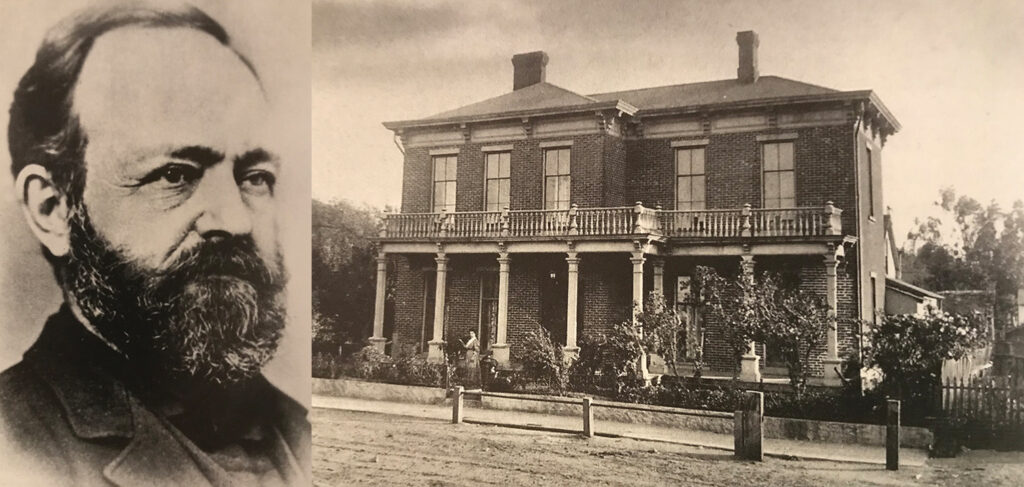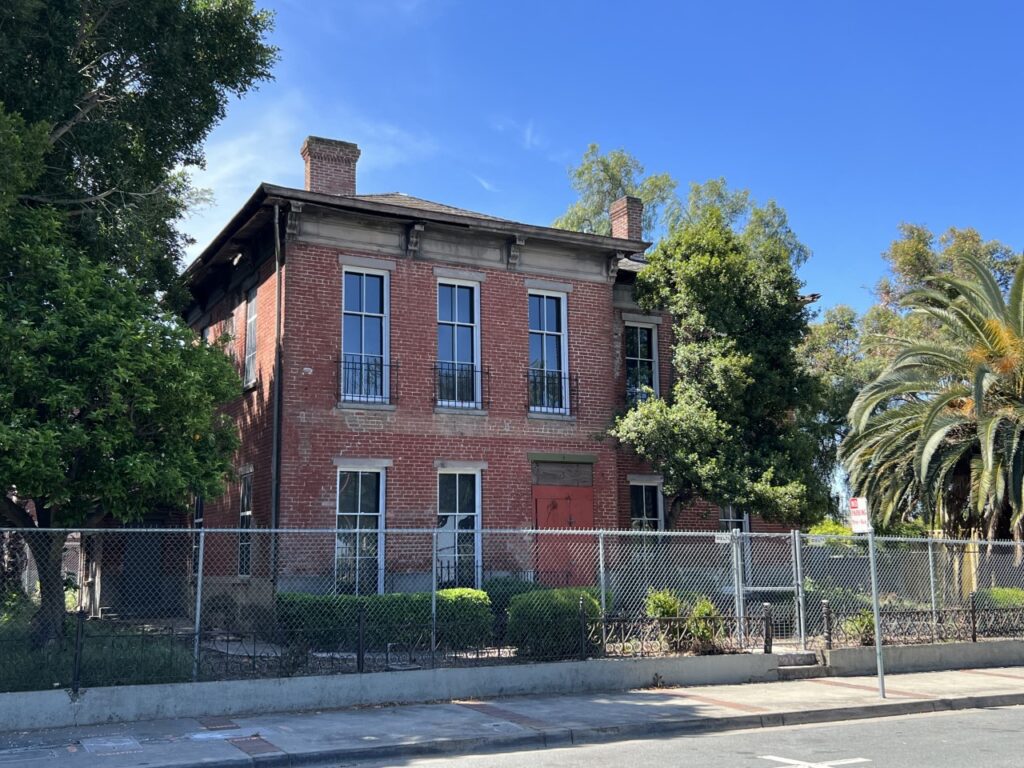History of Antioch’s Hard House and its owner, the city’s first constable and mayor

Historian says he helped start the fire in the City’s Chinatown to protect his home
By Allen D. Payton
The Roswell Butler Hard House is one of the remaining historic buildings in Antioch’s downtown Rivertown, and it was built and owned by the city’s first mayor. The Hard House is a state landmark as it was the location of the first meeting of the city’s board of directors on February 6, 1872 – the date of the City’s incorporation. Hard was the first president of the board, which later became the city council, and the brass plaque from the state for the building is currently at the Antioch Historical Museum.
Located at 815 W. First Street, the building, listed on the National Register of Historic Places on September 30, 1993, was once going to be donated to a non-profit organization, Friends of the Hard House. The group planned to reinforce it to earthquake standards and completely restore the building. Other ideas were to turn it into a bistro or offices. But the City dragged its feet and the non-profit’s effort ended as the members got older and the man who was going to do the construction fell ill, and their organization lost its non-profit status from the IRS.
Then the state disbanded all redevelopment agencies in California and tried to take control of the Hard House, as money from the City’s redevelopment agency had been spent to purchase the home. But since it sits on the same lot as the Lynn House, next door, and the lot would have to be subdivided, first, the City was able to keep the Hard House.
Since then, Mayor Lamar Thorpe has proposed using it as office space for the council members, which he suggested at their meeting on Nov. 23, 2021.

Burning Chinatown to Protect Hard’s House
According to former Councilwoman Elizabeth Rimbault, a former member of the Antioch Historical Society and co-author of the history book entitled Images of America: Antioch, Mr. Hard was also the city’s first constable and is the one who instigated setting the fire in the Chinese laundry in 1876. But the fire didn’t start there, she shared. It started in the white residents’ area of W. First, Second and Third Streets and was heading toward Chinatown. Two-thirds of the city was already burned down when Hard and others started the fire in the Chinese laundry as a backfire, to keep it from reaching his house on the other side of Chinatown.
They got away with it because the Chinese residents didn’t own the land nor the buildings because by state law they couldn’t, at that time. It was owned by white residents including Hard. But the Chinese residents did own the businesses inside the buildings.
In June 2021, Thorpe and the four other council members signed a resolution they adopted the previous month, apologizing on behalf of the city’s residents for their racism against Chinese immigrants in the late 1800’s including the burning down of the city’s Chinatown. But the resolution didn’t mention the actions of Hard and others nor the reason behind it. (See related article)
Hard was so mean, Rimbault shared, that he literally chased Rev. William Wiggin Smith, one of the community’s two founders, off of his own property. Smith’s original farm was built before Hard built his house right next door and they shared a fence line. When Smith was out of town, Hard would put Smith’s wife and children out on the street trying to evict them and take over their property. Finally, Smith had enough and over a three-day period, he and his son dismantled his farmhouse and moved it on ox-pulled sleds south of the John Marsh estate and rebuilt it there. It was called the Mountain House. That’s where Mountain House Road and the community in San Joaquin County derive their name.
On a side note, after his twin brother, Joseph Horton Smith, died, William bought the point (now called Rodger’s Point where the City’s old boat ramp is located across from the former Red Caboose Restaurant on Fulton Shipyard Road) and lived there, as well.
Rimbault wanted to make sure the Hard House is recognized for its historic value to Antioch and to set the record straight on the burning of Antioch’s Chinatown. But she doesn’t want Mr. Hard recognized. “Because he was a mean son-of-a- you know what,” Rimbault added.
This is all in the book available for purchase at the Antioch Historical Society Museum entitled, The Transcription of the Diary of William Wiggin Smith, which Rimbault retyped had printed with a donation from the local Veterans of Foreign Wars Post. (See related article)
The museum is located at 1500 W. Fourth Street in Antioch and is open from 1 p.m. to 4 p.m. on Wednesdays and Saturdays. For more information visit their website at www.antiochhistoricalmuseum.org, the Facebook page or call (925) 757-1326.
the attachments to this post:






















